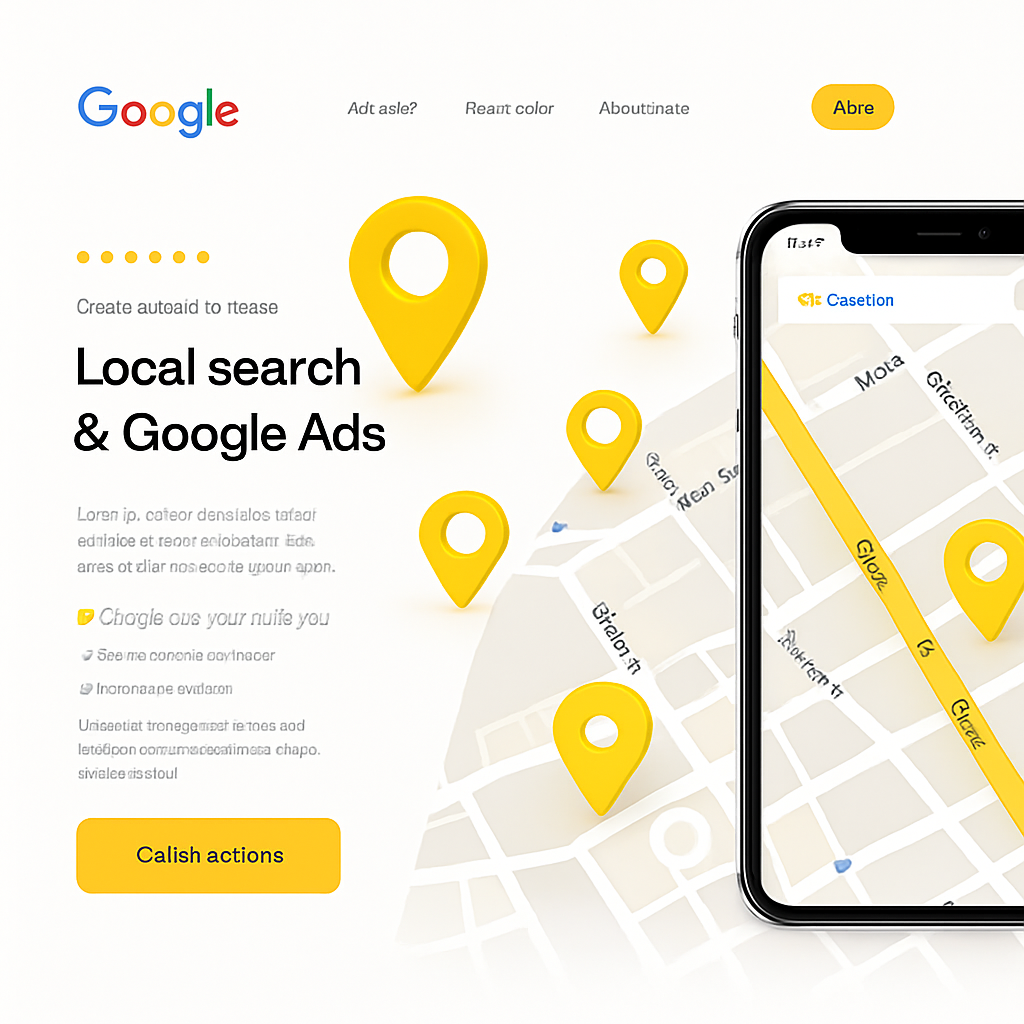Mastering Google Ads Local Search Strategies That Convert
Local search advertising through Google Ads connects businesses with customers actively seeking nearby products or services. Success requires more than geographic targeting; it demands a strategic approach to keyword selection, ad copy, bid adjustments, and location extensions to increase relevance and engagement. Delivering timely, location-specific messages helps turn casual browsers into loyal customers by addressing their immediate needs.

Understanding Local Search Intent
Effective local search campaigns focus on how potential customers interact with search results for nearby products or services. Campaigns must reflect the intent behind local queries by using keywords that include “near me” or location-specific terms, signaling readiness to engage. Aligning ad copy with these behaviors creates urgency and relevance, encouraging clicks and driving foot traffic.
Bid adjustments based on location and device type are essential. For example, increasing bids for mobile users within a certain radius targets those likely on the move and ready to purchase or visit. Location extensions display business addresses, phone numbers, and directions directly in ads, reducing friction and building trust by providing useful information when it matters most.
Benefits of Optimized Local Search Campaigns
Optimized local search campaigns improve return on ad spend by focusing resources on high-potential prospects, minimizing wasted impressions, and maximizing engagement. This approach strengthens the connection between digital ads and physical storefronts, creating a clear path from online discovery to in-person interaction. Businesses aiming to grow their local presence gain a competitive edge by mastering these strategies.
Continuous testing and refinement are necessary because local search behavior varies with seasonality, competition, and consumer trends. Monitoring performance metrics and adjusting keywords, bids, and ad formats helps maintain campaign relevance and effectiveness, driving sustained growth and customer loyalty.
Balancing Scale and Precision
Managing local search campaigns requires balancing broad reach with precise targeting. Tracking every phone call and lead is vital to understanding which ads drive real business outcomes. Identifying and eliminating underperforming keywords or placements reduces wasted budget and improves return on investment, especially for multi-location or franchise businesses needing consistent performance across markets.
Tailoring campaigns to local intent involves using location-specific keywords, adjusting bids by device and proximity, and leveraging ad extensions that provide immediate access to contact information and directions. These tactics increase engagement and build trust, making it easier for customers to connect when motivation is highest. Well-executed strategies create a smooth journey from search to conversion, maximizing local Google Ads budgets and generating measurable growth.
Frequently Asked Questions About Google Ads Local Search Strategies
How do I identify effective local keywords?
Focus on terms that reflect natural local search behavior, such as neighborhood names, landmarks, or phrases like “near me.” Experiment with broad and exact match types to find the best-performing variations, and analyze data regularly to stay aligned with changing search patterns.
How can I optimize bids without overspending?
Adjust bids based on user location and device type. Increasing bids for mobile users nearby often captures those seeking immediate solutions, improving budget efficiency by targeting users with higher conversion potential.
What ad extensions work best for local campaigns?
Location extensions provide instant access to addresses, phone numbers, and directions, reducing friction and building trust. Call extensions and structured snippets highlight specific services or promotions, making ads more relevant and actionable.
How should I track and measure success?
Set up conversion tracking that captures clicks, phone calls, store visits, and other offline actions. This comprehensive data supports smarter optimization, such as pausing underperforming keywords or reallocating budget to high-converting locations. Regular performance reviews keep campaigns focused on driving real business results.
Maximizing Local Google Ads Campaigns
Mastering local search strategies means moving beyond basic geographic targeting to understand and respond to nearby customers’ intent. By selecting location-specific keywords, optimizing bids by device and proximity, and using ad extensions that provide immediate contact details, businesses create relevant, engaging ads that drive conversions. Ongoing monitoring and adjustments keep campaigns efficient and focused on high-value prospects, turning local searchers into loyal customers and maximizing advertising returns.
Source: Google Ads Masterclass: Local Search Strategies That Convert – Search Engine Land
Quote: “Mastering local search strategies means moving beyond basic geographic targeting to understand and respond to nearby customers’ intent.” – Search Engine Land













.png)

